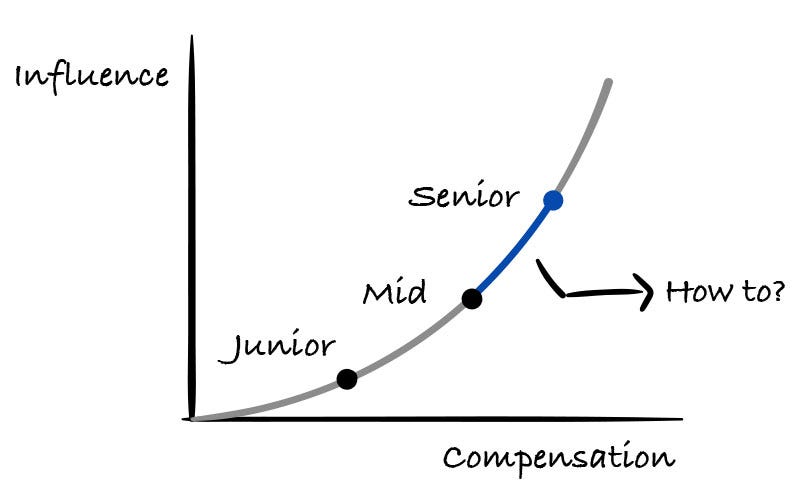How to grow from mid-level to senior Software Engineer
From the perspective of a manager.
Intro
How to grow from mid to senior level? That is a common question that a lot of engineers are asking and trying to get to know more about.
There are a lot of different ways to get there and in this article, we’ll break it down from the perspective of a manager.
I have collabed on this topic with SeattleDataGuy earlier this year and published a similar version of the article. You can check it out here: How to grow from a mid-level to senior Data Engineer or Software Engineer (paid article).
What do I look for in a senior as a manager?
There are so many different things that make a senior engineer. If I can sum all of them in 1 sentence, that would be:
A senior engineer should be able to independently understand the problem and find the right solution to it.
I am not just talking about technical solutions here. I mean solutions across different areas including communication, collaboration, mentoring and helping others.
And by no means do I mean that you need to have the right answers on the spot. A senio…


